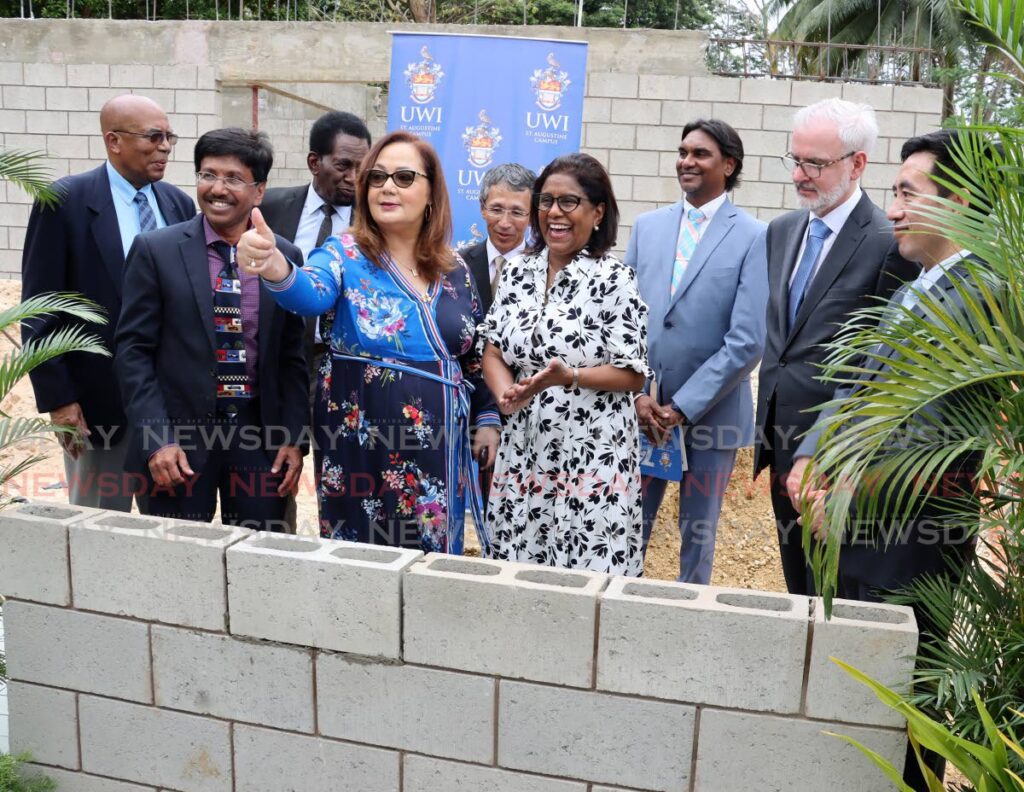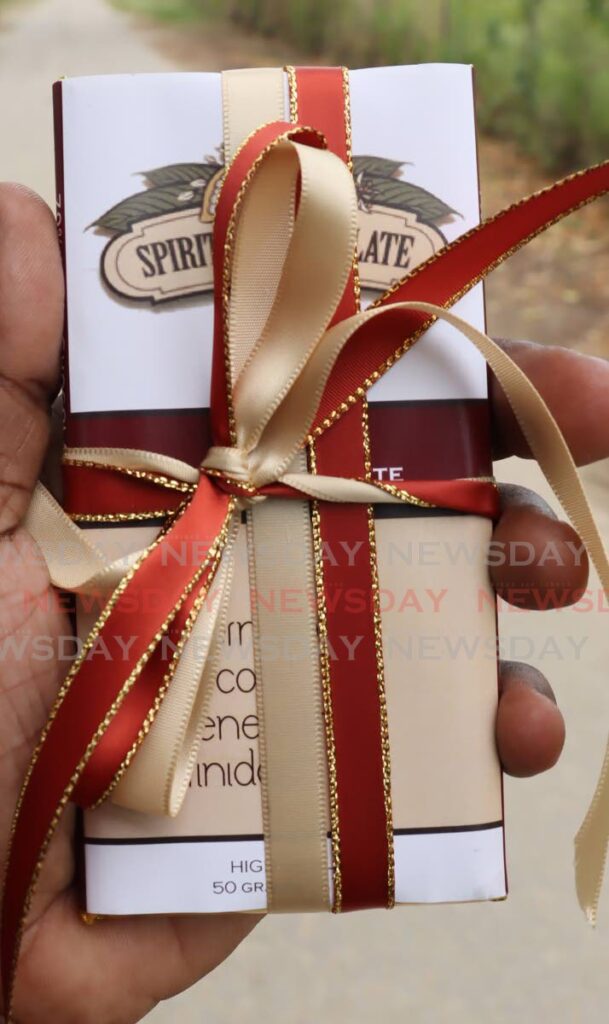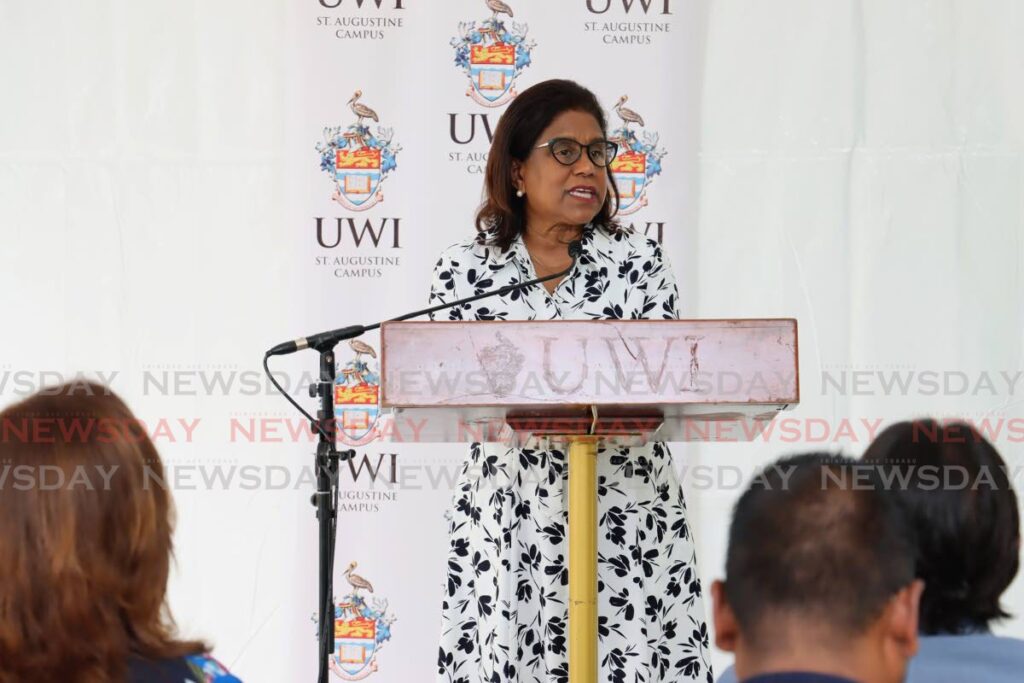$8m UWI chocolate factory to open by January

UWI, St Augustine has further invested in the local cocoa industry, as the construction of the UWI Chocolate Couverture Factory is under way.
Pro Vice-Chancellor and campus principal Prof Rose-Marie Belle Antoine said UWI is now one step closer to fulfilling a dream that will further enhance national development.
The factory is being built at the Business Innovation Centre of the university's Cocoa Research Centre at its field station in Mt Hope.
On Monday, officials laid a foundation block at the site.
Antoine said the factory will be a "tangible mark" of UWI's commitment and service to TT and the rest of the Caribbean. Calling it a "flagship project," she said it represents the best of the university, of which she is very proud.

She said it will generate revenue and "speak to the bigger issues of our time" such as food security, the environment and the green agenda.
Another benefit, which she said is often overlooked, is that it will challenge the unequal trade structures between the global south and the north.
"It's not just the raw product (any more), we are upscaling.
"We hope it will go one step further and be a shining example of private-sector partnership with academia."
She said the background work leading to this factory is heartwarming, as it involved years of training others and engaging with farmers and chocolatiers.

Reaffirming that TT cocoa "holds a unique place in the world," she said the university is capitalising on the "rapidly-growing dark chocolate sector.
Currently, UWI produces Spirit of Chocolate – a 70-per-cent dark-chocolate bar – at the Cocoa Research Centre. It was first made in 2012. It uses cocoa from the International Cocoa Genebank which is along the Caroni River basin in El Carmen.
Antoine thanked the funders of the factory – the European Union (EU), TT government and Lindt and Sprungli.

She promised that UWI is determined to assist with agriculture and continue to work with farmers and the government, and added that it is actively seeking collaborators and investment partners from the private sector.
She said this can help "make cocoa not just a viable industry but a thriving one."
She urged young people that there is money, success and satisfaction in the cocoa industry.
"This beginning is just a sign of great things to come."
Trade Minister Paula Gopee-Scoon said the factory will create "significant opportunities for high value-added products," which will create "much-needed foreign exchange" and create employment opportunities.
She said cocoa products can be exported to 27 EU countries and the UK duty-free, so local manufacturers can boost their exports.
She reminded the public not to overlook the roles of everyone who makes up the cocoa industry, adding that the "visionary project" reaffirms the ministry's commitment to such advancements.
She said it will have a transformative impact on the agricultural sector.

Director at the research centre Prof Pathmanathan Umaharan said the factory is the result of over ten years of planning, which he sees as "the light at the end of the tunnel."
He said it will "allow the country to reap the benefits of the research innovations.
"This factory now allows businesses capacity to upscale their productions so that our local brands can become a force in the export market."
He added that his team will "definitely not (be) sitting in the proverbial fools' paradise thinking all will be well when it is completed.
"While we have a global (cocoa) reputation, we need to build that reputation for our chocolate brands and other products."
This, he said, will shorten and concentrate the cocoa value train in TT and reduce its carbon footprint.
He said the factory will have the capacity to make 200 tonnes of chocolate, and marketing that "is no easy task."
Currently, he said, TT's cocoa bean exports only capture 78 per cent of the total value chain. He believes the factory will boost this.
In addition, Winston Rudder, chairman of the Cocoa Development Company, reminded the public that cocoa production and the industry did not "exist within a vacuum..."
He said the research centre "can only do so much.
"...Until the framework within countries by way of policy, clarity in policy, by way of programmes, clarity on programmes and by way of exploiting synergies in the research, the extension and whatever else governments do – with the university – to ensure the coherence that is required for development of the cocoa industry...unless you have that, (the research centre) will remain a centre of excellence that is recognised by other countries in the world, a centre of excellence that other countries in the world, including the major chocolate manufacturers throughout the world and the countries in Latin America, Africa, Asia look to...
"The point is, they are using the outputs. We have to get our act together and do the same here...and it starts by policy and programmes."
Ric Javed Ali, deputy permanent secretary in the Agriculture Ministry, congratulated UWI, adding that the factory is "an excellent example of how agriculture can be a catalyst for innovation and value-added exports."
He said he looks forward to the creation of community engagement through workshops, tours, among other things.
Asked what the project's total budget was, Umaharan told Newsday approximately $8 million. On when construction will be complete, he said by September, adding that it will only officially open in January 2024.

Comments
"$8m UWI chocolate factory to open by January"